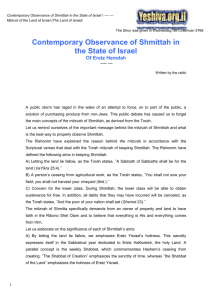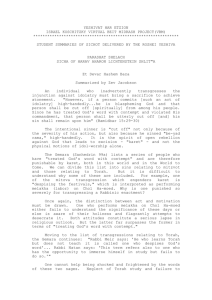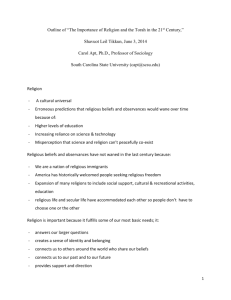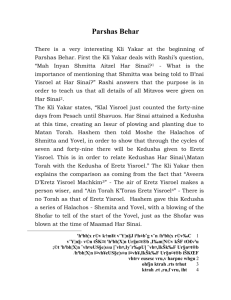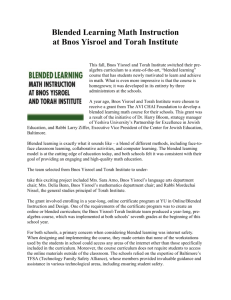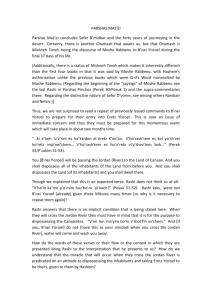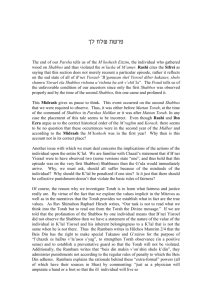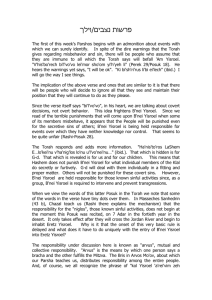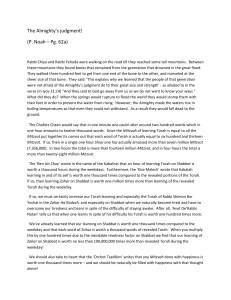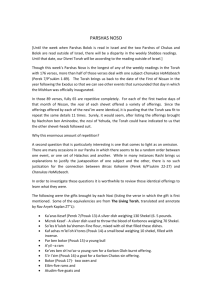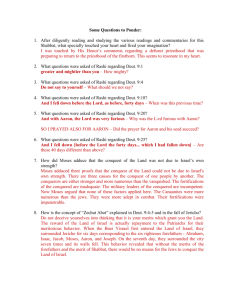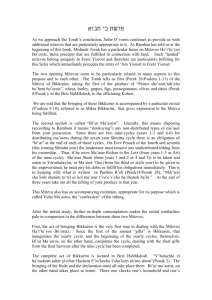Parshas Shoftim In this week`s parsha we find the prohibition of
advertisement
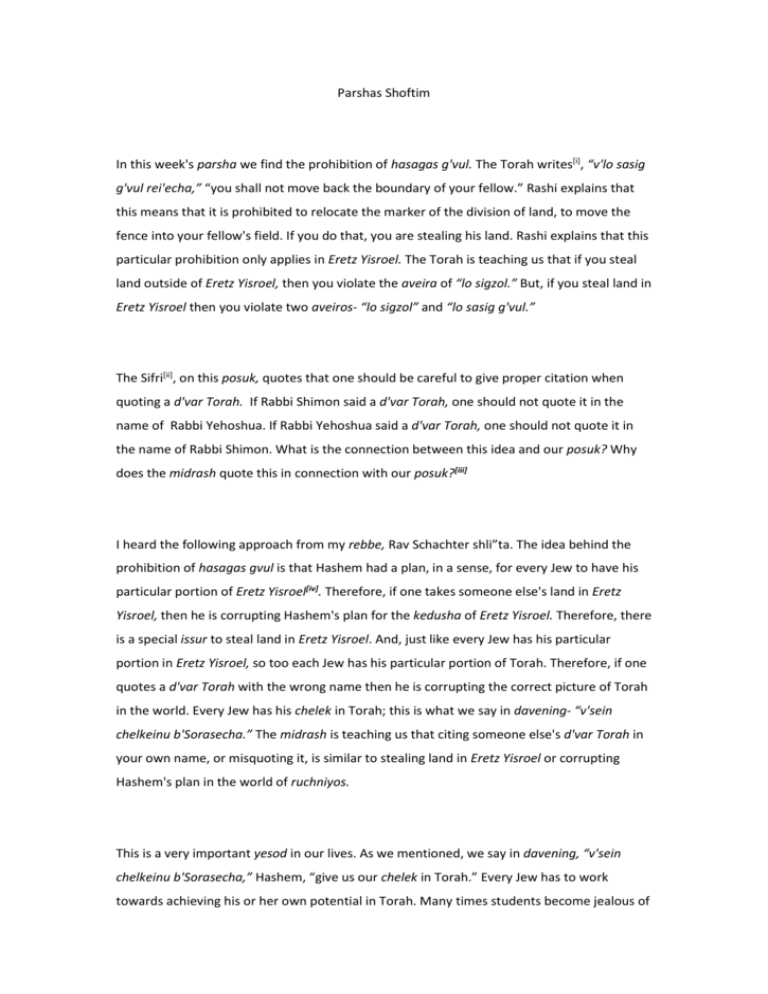
Parshas Shoftim In this week's parsha we find the prohibition of hasagas g'vul. The Torah writes[i], “v'lo sasig g'vul rei'echa,” “you shall not move back the boundary of your fellow.” Rashi explains that this means that it is prohibited to relocate the marker of the division of land, to move the fence into your fellow's field. If you do that, you are stealing his land. Rashi explains that this particular prohibition only applies in Eretz Yisroel. The Torah is teaching us that if you steal land outside of Eretz Yisroel, then you violate the aveira of “lo sigzol.” But, if you steal land in Eretz Yisroel then you violate two aveiros- “lo sigzol” and “lo sasig g'vul.” The Sifri[ii], on this posuk, quotes that one should be careful to give proper citation when quoting a d'var Torah. If Rabbi Shimon said a d'var Torah, one should not quote it in the name of Rabbi Yehoshua. If Rabbi Yehoshua said a d'var Torah, one should not quote it in the name of Rabbi Shimon. What is the connection between this idea and our posuk? Why does the midrash quote this in connection with our posuk?[iii] I heard the following approach from my rebbe, Rav Schachter shli”ta. The idea behind the prohibition of hasagas gvul is that Hashem had a plan, in a sense, for every Jew to have his particular portion of Eretz Yisroel[iv]. Therefore, if one takes someone else's land in Eretz Yisroel, then he is corrupting Hashem's plan for the kedusha of Eretz Yisroel. Therefore, there is a special issur to steal land in Eretz Yisroel. And, just like every Jew has his particular portion in Eretz Yisroel, so too each Jew has his particular portion of Torah. Therefore, if one quotes a d'var Torah with the wrong name then he is corrupting the correct picture of Torah in the world. Every Jew has his chelek in Torah; this is what we say in davening- “v'sein chelkeinu b'Sorasecha.” The midrash is teaching us that citing someone else's d'var Torah in your own name, or misquoting it, is similar to stealing land in Eretz Yisroel or corrupting Hashem's plan in the world of ruchniyos. This is a very important yesod in our lives. As we mentioned, we say in davening, “v'sein chelkeinu b'Sorasecha,” Hashem, “give us our chelek in Torah.” Every Jew has to work towards achieving his or her own potential in Torah. Many times students become jealous of their friends and say to themselves- he knows more than I do, she is smarter than I am, he can learn better than I do, or she always asks the good questions in class. A person can spend a lot of time worrying about what everyone else is doing and not focusing on his own growth and learning. This is a mistake[v]. This jealousy is counterproductive. Each person has to focus on achieving his own potential in Torah, “v'sein chelkeinu b'Sorasecha.” There is one type of jealousy that is good, that jealousy is called kinas sofrim. When I am jealous of my friend and I say, “Hey, if he can do this, so can I!” That is a productive jealousy because that jealousy spurs one to work harder. However, most of the time the jealousy is counterproductive. This is a yesod one can glean from this midrash, “v'sein chelkeinu b'Sorasecha.” Each person has to work on achieving his or her own potential in growth in Torah and Yiras Shamayim. Good Shabbos, B. Ginsburg [i] Devarim 19,14 Piska 45 [iii] Some meforshim on the midrash deal with this question on the midrash. [ii] [iv] Rav Schachter developed this theme at length based on several mekoros. The primary one is the halacha that Eretz Yisroel did not achieve its full keduasha until after the seven years of conquest and the seven years of dividing up the land. Some of the halachos did not begin until after those original 14 years. This reflects that the kedusha is partially dependent on each Jew having his own, particular portion in E”Y. [v] It is also quite common that a person has his own angle on something or his own way of understanding something. And very often someone who is not considered the “star student” or the “top student” has his own original insight, and this insight becomes his chelek in Torah.
